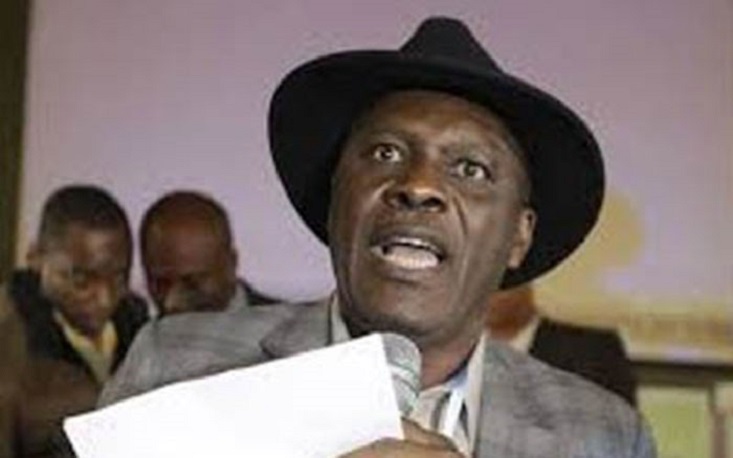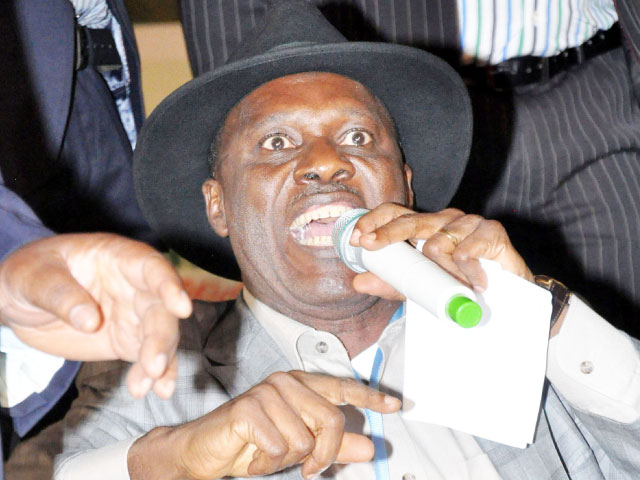For dialogue to be effective and successful, it should take a cue from the templates adopted by former presidents Olusegun Obasanjo and the late Musa Yar’ Adua in tackling previous insurgencies in the region, elder statesman, Chief Edwin Clark has said.
“At our inaugural meeting, we issued a communiqué, which should form the basis of the dialogue. What we are doing is for the interest of the nation. We all agree we must remain as one united Nigeria. We don’t want a situation where the national anthem is changed and the flag burnt in any part of the country,” he said.
The Niger Delta leader said the consultative forum had begun preliminary interface with militant groups and stakeholders, which he hinted were in good numbers, but declined to mention names of the groups and stakeholders or state their conditions for ceasefire.
According to him, the groups and stakeholders are ready for the dialogue and would present their conditions and demands at the negotiating table when all is set for the mediation parley, adding, “Once the right things are done, I see peace returning to the region and the country.”
On his part, the former Minister of Niger Delta Affairs, Elder Godsday Orubebe, said President Muhammadu Buhari’s effort at bringing peace to the region had been hijacked by those he described as “commercial merchants.”
Asked how the Yar’Adua administration was able to achieve peace in the Niger Delta through the amnesty programme, Orubebe said, “I told former President Yar’Adua that the real thing to be done was for us to go to the creeks. Of course, at that time everybody felt that nobody could go to the creeks. But I stood my grounds and told the former president that the only solution was to go to the creeks to talk to people who were actually the Niger Delta militants.
“Against all odds, Yar’Adua made me the chairman of a committee and said I should tell them that he would develop Niger Delta if they gave him peace. That was the message we took to the creeks. So I gathered the people, we prayed and handed over the entire process into God’s hands.
“We spent two weeks in the creeks, moving from one militants’ camp to another, from Ondo to Akwa Ibom, and we finally brought all of them. Then, Tompolo had a camp they called Camp 5. I brought all of them to Tompolo’s camp. We discussed over and over and they gave me conditions for moving forward. Of course, that time Henry Okah was in prison and they said the number one condition was that he be released; number two was that the then Vice President Goodluck Jonathan should come to the creeks and address them. Number three was general development.
“I came back to Yar’Adua and spoke with him and the then Vice President Jonathan and other government functionaries. There were arguments, but I told the former president that we should give it a try. Henry was released. Goodluck Jonathan went to the creeks and addressed over 2,000 militant youths, and everything followed.
“I can tell you that throughout the period of discussion for the amnesty, the Niger Delta militants did not take even one naira from the federal government. They paid their hotel bills, they paid their own allowances, and that was how discussions went on till we had the amnesty.
“That was how amnesty started and everybody embraced it. I can tell you that Yar’Adua was determined to develop the Niger Delta. In the 2010 budget, the president proposed that N156 billion be spent on the Ministry of Niger Delta. But unfortunately, Yar’Adua died. Throughout my stay in the ministry, I never had up to N20 billion in a year to work in the Niger Delta. Today, we are where we are, back to square one again.”
On how the Buhari administration could bring lasting peace to the region, Orubebe said, “When you get the right people who can move to the creeks and talk to people, when you get the right stakeholders, when you move away from commercial stakeholders, when you move away from business stakeholders, when you move away from elders who are businessmen, when you move away from people who are only thinking of what they will get, it is not about enriching yourself, it is about doing an assignment for a country where you belong. When you get those people, you will get the real people”.








